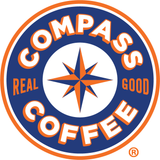There’s two types of soreness when you leave the gym. The “wow I feel really strong!” kind of soreness, and the “oh my gosh what did I do, everything hurts” kind of soreness. This blog post is to help you with the latter.
So first things first: WHY do we even GET sore when we work out? The answer might creep you out a bit. Did you know our muscles actually tear when we work out? Uh, yeah. They rip, rebuild, and grow. (No wonder it hurts like hell.) Don’t worry – it’s natural and actually very good for you. But there’s definitely a few hacks to make the not-so-enjoyable parts of it more enjoyable.
So, how does caffeine help sore muscles?
Stay with me here. We’re about to get really scientific.
Caffeine works by blocking certain spots on nerve cells called adenosine receptors. Normally, when adenosine attaches to these spots, it can make you feel pain. Caffeine stops adenosine from attaching, which helps reduce the feeling of pain. This happens both in the brain and in other parts of the body where pain signals start.
So…
Adenosine causes pain.
Caffeine blocks adenosine.
Caffeine prevents adenosine from causing pain.
You feel good.
See? That wasn’t too bad.
Caffeine also replenishes glycogen levels
Another benefit of caffeine is that it helps replenish glycogen levels in your body.
After a workout, your muscles have depleted their glycogen stores, which is essentially their quick-access energy reserve. Replenishing glycogen is important because it helps your muscles recover and prepares them for your next physical activity – caffeine helps make that process faster.
Even better, pairing caffeine with carbohydrates — like having a coffee with a banana — has shown an even more dramatic increase the rate at which glycogen is restored in the muscles.
Timing is key
Like most things related to health and wellness, the timing on this is actually pretty important.
The period immediately following your workout is often referred to as the "golden hour" of recovery. During this time, your muscles are particularly receptive to nutrients due to increased blood flow, which helps transport glucose and other nutrients into muscle cells.
Drinking coffee within 30 minutes after a hard workout not only helps take advantage of caffeine's pain-relieving properties (yes please!), but also capitalizes on its ability to increase glycogen production. As we covered earlier, glycogen (glucose in your muscles) is pretty critical for muscle repair and recovery. And also as previously mentioned, combining caffeine with carbohydrates can increase glycogen stores significantly more than carbs alone.
To put it simply: by timing your coffee consumption shortly after your workout, you ensure that the caffeine acts when your body is most ready to absorb these benefits, reducing muscle soreness and speeding up recovery.
Have fun with your coffee-experimentation!
If you thought you were limited to a shot of espresso to reap these benefits, you’re wrong.
Incorporating coffee into your post-workout regimen doesn't just have to be boring. Have you ever tried a protein coffee smoothie? It’s as amazing as it sounds. Blending coffee with other nutritious ingredients is an easy way to enhance your recovery and fuel your body while enjoying a delicious treat.
Important to note, this is not a one-size-fits-all formula. The MOST important thing is to always listen to your body. Consider how caffeine affects you personally when planning your post-workout recovery. Feel free to (safely) experiment with the timing and methods to discover the perfect coffee combination that best suits your needs and enhances your recovery!






